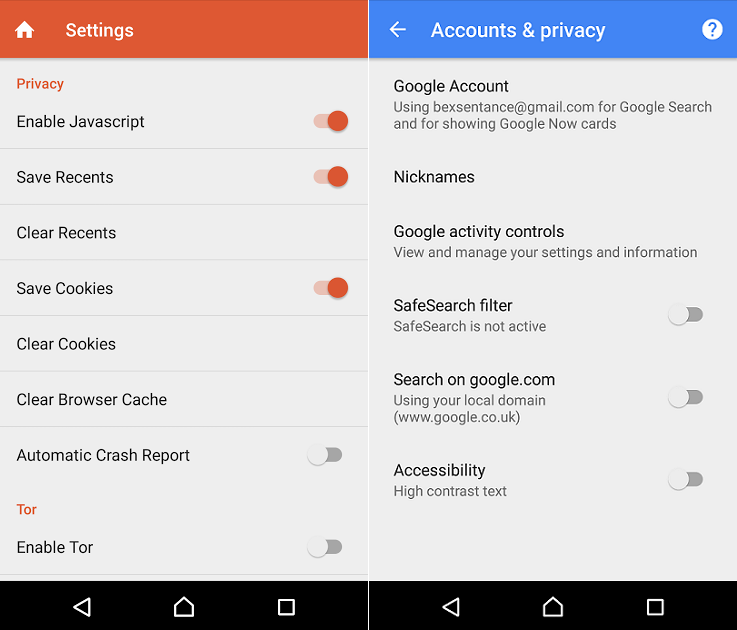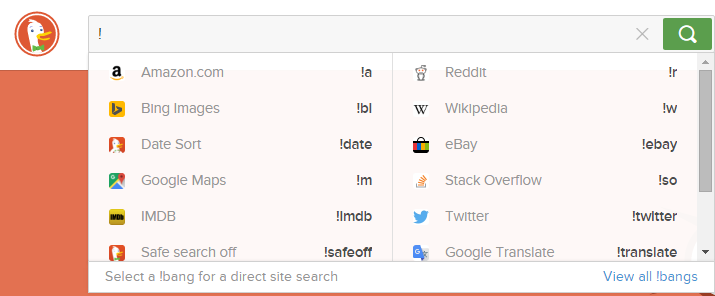
For as long as most of the world can remember, Google has been the all-powerful internet search engine. Let’s try to compare DuckDuckGo vs Google. While there has been a weak line of competition to the search engine monster in the form of Bing and Yahoo Search, none of them has stepped up to the mantle quite like the newcomer DuckDuckGo has.
The relatively new entry to the arena of search engines dominated by Google, DuckDuckGo was founded in 2008 and has been on a rapid growth path ever since. Once a name only whispered by anti-Google users who were tormented by the unreasonable search rules Google sets, DuckDuckGo now enjoys the endorsement of big names such as the New York Times and even made it to the top 50 sites on TIME Magazine.
DuckDuckGo does Privacy better than Google

From the perspective of a user who is concerned about how Google uses your data to target advertisements and moderate your searching habits, DuckDuckGo seems like a gentle relief. The main goal behind the working of DuckDuckGo is that it does not save on your search activities or track your IP address.
Taking the Google Search app for Android and the DuckDuckGo app as an example, the difference in the available privacy settings is surprising. While Google sticks to no more than a couple of privacy filters options, its competitor trumps it by offering half a dozen features related to JavaScript, Cookies, Saved Recents, and more!
DuckDuckGo vs Google privacy settings are astoundingly different

Moreover, the desktop version of the DuckDuckGo search engine takes privacy one step further with options to prevent sharing your search data with the websites you visit. Coming to customization, DDG lets you go all out with themes, change different appearance elements, hence focusing on user-experience rather than grabbing all your data to make some sweet advertisement money.
DuckDuckGo gives you “bang” for your buck

Since every website today has a search engine built into it, wouldn’t it be great if you could search directly for a particular keyword right from your search engine? Well, DuckDuckGo has you covered with a highly popular feature called “!bang”.
Type in the exclamation mark in the URL of the search engine, and you will see all the !bangs pop up. For instance, if you want to look up a toaster on Amazon, type in “!a toaster” and the page will take you directly to the search results for a toaster in Amazon.
If DuckDuckGo is so great, why isn’t everyone using it?
One of the main reasons people find it harder and harder to let go of Google is the sheer convenience it provides. With the deep-rooted integration between Google Search and Android OS, it is impossible for users to abandon the world’s largest search engine.
However, the average user has a good reason not to make the switch, as some embedded features like semantic search, social media integration, and “smart searching” technology are something DDG does not have. While the browser had come a long way, with a 75 percent increase in user base in 2015, Google has the leverage of several years of research and development over DuckDuckGo.
While DuckDuckGo can do well by itself even with the steady growth it has been experiencing, Google is known for crushing its competition. Not only is it harder to set DuckDuckGo as your default search engine in Google-owned Chrome browser, but Google is also known to suppress organic searches related to DDG. So here’s the best comparison between DuckDuckGo vs Google.
We could see the rise of DuckDuckGo as a mainstream search engine when people have finally had it with Google barging into their privacy. However, for now, DDG continues to be the “user first” search engine that keeps your data out of reach with absolute confidentiality and a fair amount of personalized customization options.